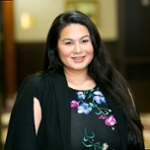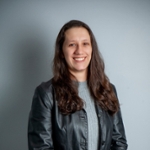Title: Director of Accounting
Company: Magnum Projects
Industry: Real Estate Marketing
I’ve always wanted to be the ultimate decision maker in the finance department and sit on Boards of Directors for NPO boards. I’ve achieved my goals by being the Controller with UAPICBC and later on Director of Accounting with Magnum and sitting on the boards of Dunbar Community Centre and BC Borstal Association. I enjoy having a direct impact on business operations and being a storyteller of the financials. I also started my own CPA firm in 2021 with the hope to sharpen my business acumen and create value by boosting profitability for my clients.
Each financial statement tells a story about the company.
On a higher level, each financial statement tells a story about the company and the year. Is it debt heavy? Is there too much cash not being re-invested? Is it accumulating losses over the past few years? Is it liquid (enough asset to cover its liabilities)? You will find answers by calculating some ratios. On the operational level, people without a financial background look at the financial statements without understanding what it means to their department/team. When you break down the financials and apply the cost allocation method you learned in Management Accounting course, you will see what the biggest profit/loss driver is. From there, you can advise the senior management to allocate 80% of the company resources on the 20% profit drivers that make up majority of the company revenue, not the other way around. That's the general idea, the 80%/20% rule varies for different companies. For the loss drivers (projects that are not self-sufficient), it is worth conversations with senior management to review resource allocation and plan on cost reduction. Don't be the only one in the company who knows what is going on financially, be prepared to bring the "story" with you and tell it in senior management/board meetings to help with better decision making.
Apply for jobs that you only meet 60-70% of the job qualifications, the remaining percentage represents opportunities for growth.
The interview is a selling process. You are selling your personality, your experience and skills. The more you do it/review it, the better you are at it. One question I love – “what’s your biggest weakness?” How you convey that message is important. To me, it is not “weakness,” it is something I am trying to be better at. My current answer to that question is “I’m currently working to be more patient, meditation and journaling is my daily practice to make that happen and I’m seeing progressions.” You are not going to know exactly how to do everything in that job posting, so have some examples of how you are a quick learner.
I have always see myself as a company.
I always see myself as a company and establish visions, missions and mini KPIs (community involvement, entrepreneurship, career progression, compensation package, and donations etc.), to track my progress. I review them quarterly to make sure I’m on the right track. When my company does my performance review, I always see it as a two-way street. I would ask myself what my vision and missions are and if my role fits into my vision and missions. Does the company have room to facilitate the growth I expect in the timeframe I set for myself? Always ask for a better title/compensation package – you will never get what you don’t ask for. Even if you did not get what you asked for, by getting the rejections early on helps you pivot your path quickly and be on to your next goal.
Also, as a student, do as many Co-op terms as possible. I was had two part time jobs as cashier and sales associate when I was full time studying in Langara, my biggest dream/ambition at the time was “find an office job that allows me to sit down to do my work.” When I heard about Co-op, the level of support and the amount of preparation the Co-op & Career Department has for its students amazed me. I told myself “I’m not going to leave Langara until I find an office job”. Over the years, I have heard a lot of stories about how students graduate into unemployment, I always wonder if they did any Co-op? From each of my Co-op placements I was extended offers for permanent position, so I was not worried about unemployment when I graduated. The experiences accumulated before I graduated allowed me to focus on career growth rather than find a stable job when I graduated.
However, if I knew I was going to open my own practice, I would probably go into public practice. It's very challenging (and time consuming) to complete the CPA experience requirement through EVR (Experience Verification Route for industry accountant) comparing to PPR (Pre-approved Route for firm accountant). I do not regret the path I took as the compensation and work life balance I got in industry was better than my peers in public practice, I do think you will learn a lot more by working in a pre-approved accounting firm and the experience reporting would be so much easier. So, this is the suggestion I would give to students who are planning their CPA journey.
This story was written in the Spring 2023 semester. See Vivian’s LinkedIn for updates on her career journey.




